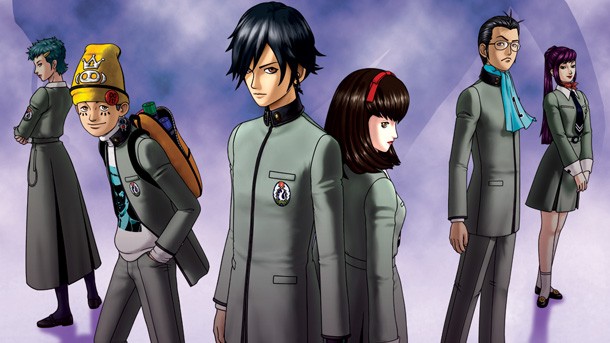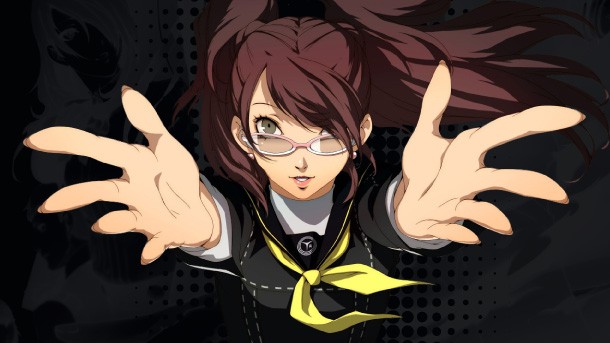Perfecting Persona: How Atlus USA Bloomed

Atlus USA has become a go-to publisher for niche Japanese role-playing games, with Persona earning the company its reputation. The mature RPG franchise deals with heavy issues, centering on self-acceptance, and forces characters to confront their deepest fears. The true-to-life writing has earned high acclaim; after all, don't we all hide behind some sort of persona? It also caters to the hardcore RPG player with its traditional, challenging battle system that focuses on exploiting enemies' elemental weaknesses.
The franchise might seem like a no-brainer for localization now, but in the late '90s, it was a risky venture for a small company. While Atlus Japan handles development, it's up to Atlus USA to translate it in English. With plenty of dialogue to translate, only six full-time employees, and mature, potentially divisive material, the American division took a risk. It paid off. This is the underdog's story of how Persona propelled the small team from obscurity to the front of the JRPG pack.
Editor's Note: This feature originally appeared in issue 245
Forming an Identity

By the time the first Persona hit, Atlus USA had been around over five years, but the company lacked a flagship franchise. "We really had everything to gain since we were really in need of a series or game that would define us as a publisher," says former marketing manager Gail Salamanca. "Square had Final Fantasy, Konami had Suikoden, Capcom had the Breath of Fire series. Persona was Atlus' first very real opportunity to grab a piece of the RPG pie in North America."
|
Crafting a North American Brand When Atlus localized its first mainline Shin Megami Tensei game, Nocturne, in 2004, the company made the decision to add the name Shin Megami Tensei to every title, even spinoffs like Persona. "That was pretty much a marketing strategy decision that the company made," says lead editor Yu Namba. The games aren't so different; using similar universes plagued with demons, so Atlus decided to keep all the names under one umbrella to form a brand for English-speaking audiences. |
The venture was risky; localization with such a small team and large amount of text is not an ideal undertaking, especially on an untested property. According to Salamanca, Atlus USA also struggled with making a game so infused with Japanese culture relatable to an American audience.
"The localization staff was really concerned about the game being too Japanese and alienating Western consumers," Salamanca says. "So a majority of the references to Japan and Japanese culture were either altered or changed." Characters were also made over; the lead's hairstyle was altered and one character, Masao, was dubbed Mark and had his race changed to African-American.
Additionally, the staff didn't anticipate the uproar from the name Revelations: Persona. "It was one of those things that just sounded cool at the time, and the staff never gave it any thought in terms of the religious implications that it might have had," Salamanca says. "So, we had people calling us, saying that we worshiped the devil because of the name and the demon-esque character on the front of the box."
But Revelations: Persona did exactly what Atlus wanted: the PlayStation release got people talking, and eventually became a cult hit. The title had the exceptional persona fusion system and multiple endings that the series is known for today. With most RPGs adopting fantasy settings, it also stood out for its contemporary backdrop featuring high school students. This lured people in and got them anticipating the sequel.
Atlus split Persona 2 into two games - Innocent Sin and Eternal Punishment, each one side of the same story - but only Eternal Punishment was localized. Rumors swirled that an appearance from Hitler and Nazi-like enemies made Atlus back away from Innocent Sin. According to Salamanca, other factors led the company to pass. "I remember a few things that we were 'told,'" he says. "But, I think it pretty much boiled down to resources and manpower since development was well underway on P2:EP. Having to go back to P2:IS localization probably wasn't factored into the dev team's schedule, so we pretty much had to let it go. Though it wasn't for the lack of b---ing and moaning by the U.S. staff."
Revelations: Persona and Eternal Punishment both did decent critically. Revelations scored in the 7 tier from publications like GameSpot and Gamepro, and got an 8.75 from Game Informer. Eternal Punishment did even better, receiving scores in the 8 range from GameSpot, EGM, and Game Informer, putting the series on the map. But to find a wider North American audience, Atlus still had some hurdles to overcome.
A New Approach

|
The Persona 3 Controversy Persona 3 wasn't Atlus' first Mature-rated game, but it was the first in the Persona series. While Atlus previously strayed away from controversial subject matter, Persona 3 let the content stand for itself, which caused media chatter when screenshots went public. Pictures of characters putting gun-like "evokers" to their head to summon their personas rubbed some people the wrong way. "When the U.S. media got access to the images, they thought, 'Why are they doing this? Are we promoting suicide?'" says lead editor Yu Namba. "In the end we thought, 'Yeah, it's pretty graphic, but at the same time, it's understandable as long as you play the game.'" |
Learning to market a new franchise, especially a dark one like Persona, isn't easy. Atlus' missteps aren't surprising, but the company took public feedback to heart and adjusted its localization approach. Instead of running from its niche appeal, Atlus embraced it.
One of the aspects Atlus changed its tune on was its approach to Japanese culture. Previously, the team had changed towns and characters to avoid bombarding the audience with Japanese references, but Atlus took the opposite approach with 2000's Eternal Punishment. "We believe that the games take place in Japan, and that most of the characters involved in the story are Japanese," says Atlus USA lead editor Yu Namba. "We actually think of those aspects as assets as well. We [always] try to keep as much of that Japanese element intact as possible."
Straight translations read awkwardly, so the team still altered references difficult for Americans to grasp. "We try to find something equivalent here in the States, so there's no meaning lost in the localization," Namba says.
Deciding what needs to be altered is a tough job. "One of the challenges is finding the right balance between respecting the source material and...making it accessible to the audience," says Atlus USA director of production Bill Alexander. "It's clear that a lot of our fans want something that's true to the original and we want to deliver something that the fans appreciate."
Seven years and a console generation transition marked the gap between Persona 2: Eternal Punishment and Persona 3. The wait could have caused a decline in interest, but the Persona 3 release on PlayStation 2 was anything but lackluster. According to Atlus, the game sold significantly more than Persona 2, bringing the series out of obscurity.
"I think you could say that from the earlier games prior to Persona 3, the Persona games kind of fell into this cult classic categorization," Alexander says. "They were really, really popular amongst a smaller number of hardcore fans and then once Persona 3 [launched], the audience really exploded and a lot more people were talking about it."
The new entry introduced social links and a slew of randomly-generated dungeons. Social links, interactions providing deeper insight into secondary characters, are by far the most popular addition. "Social links definitely added a lot of variety to the gameplay. In many ways, it's the polar opposite of the dungeon crawling aspect," Alexander says.
Namba thinks the social links caught on because they meshed with the storyline. "Even from the first Persona, there was the theme of duality, people wearing masks, their persona," he says. "You're interacting with these NPCs who [are] a certain way towards the beginning, but...you actually learn they have a different side of them. Not having very straightforward, linear, and flat characters...I think that helped further the case of the Persona series from three on to be for a more mature audience."
With buzz growing, Atlus moved on to Persona 4. The next installation on the PS2 built on the third entry by giving players control over the full party. The narrative also presented more challenging subject matter, with one character questioning his sexuality and another struggling to embrace her gender. The content had the potential to narrow the audience, but it worked to Atlus' advantage.
"Games aren't just for little kids anymore, and a lot of our games are targeting an older audience," Alexander says.
"We thought in order for the video game industry to expand, we needed to approach more mature topics and a more mature audience so nobody was left out," Namba adds.
Persona 3 and 4 solidified Atlus' position, bringing the company closer to its goal to be known as a leader in Japanese RPG localizations. Both games have gone on to win Game of the Year awards. Persona 3 won awards from prolific publications such as GameSpot, GameSpy, and Gamasutra; while Persona 4 was donned 2008's Best Role-playing Game by IGN and GameSpy. Atlus also reported a 33-percent sales increase from Persona 3 to Persona 4.
| Handheld Success |
|
Persona 3 and 4 brought new fans, and to help them catch up with the series history, Atlus ported the early titles to handhelds. Innocent Sin’s PSP release was the first time fans stateside had an opportunity to experience protagonist Tatsuya Suou’s story and finally releasing it was an exciting moment for Atlus. Persona 1 PSP also erased Atlus’ earlier transgressions, returning to a more faithful localization. Additionally, Atlus expanded its fanbase with Persona 3 Portable for the PSP and Persona 4 Golden for Vita. Golden went far beyond expectations, surprising Atlus with just how many people bought a Vita for it. Persona 4 Golden also had an opportune launch, generating plenty of buzz. “At the time, I don’t think there were a ton of RPGs available on the Vita, and it just became a no-brainer for people,” says director of production Bill Alexander |
Standing Out in the Future

The Persona series has continued to be in the vanguard of the JRPG subgenre. Not only has it thrived off its modern day Japanese setting, but the realistic characters stand out. "[These characters] are real people facing personal challenges and personal demons," Alexander says. Atlus is already looking to the future, saying it will work its hardest to localize any new titles.
With Atlus Japan recently registering a Persona 5 domain, a new venture may just be on the horizon. Unfortunately, Atlus parent Index Corporation is undergoing challenging financial and legal times, as the company has reported significant debt and devaluation amidst fraud allegations. Key officials are stepping down, and the impact of the situation on Atlus and its stable of titles is unknown at the time of publication.
The company still has immense faith in Persona and takes its legacy seriously. "We don't want the Persona series to get watered down for a mainstream audience," Alexander says. "We'd like to see more people step outside their comfort zone and try a game like Persona, which does things that other games aren't doing." Over 15 years later, it's hard to believe a niche empire was built on a single risk.

Get the Game Informer Print Edition!
Explore your favorite games in premium print format, delivered to your door.
- 10 issues per year
- Only $4.80 per issue
- Full digital magazine archive access
- Since 1991









